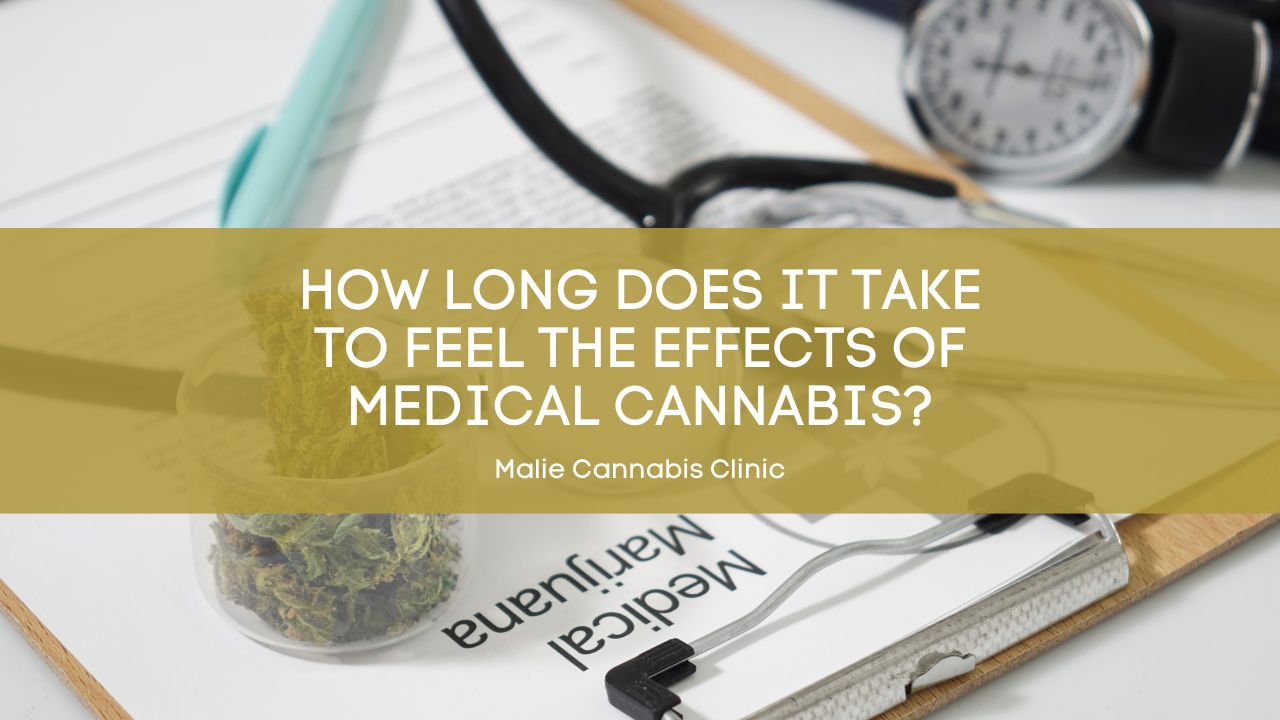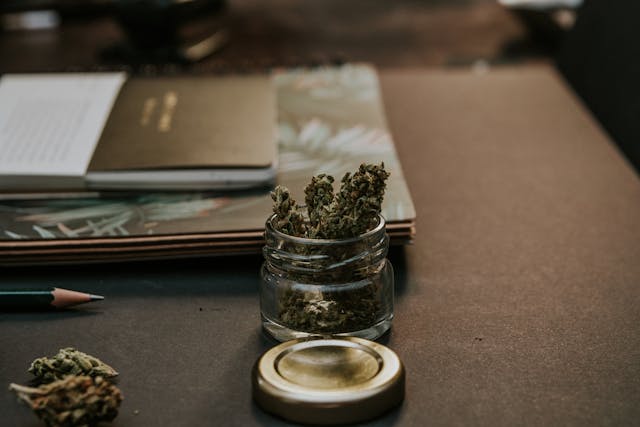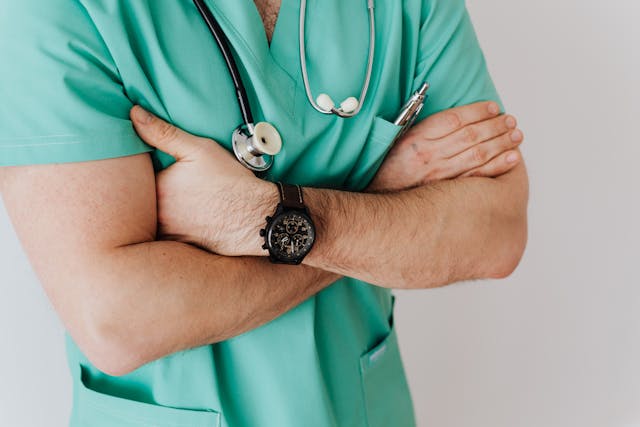
Medical cannabis has become a popular choice for individuals seeking relief from various medical conditions. However, the time it takes to feel its effects can vary widely depending on factors such as the method of consumption, individual physiology, and the specific cannabis product used.
Understanding these variables is crucial for achieving the desired benefits safely and effectively. In this guide, we’ll discuss the factors that affect how quickly cannabis works, compare its short- and long-term benefits, and offer tips for dosing correctly.
How Quickly Does Cannabis Take Effect?
The method you choose to consume cannabis has a significant impact on how quickly you feel its effects. Below is a breakdown of the most common methods and their typical onset times:
Smoking and Vaping
Smoking or vaping cannabis is the fastest way to feel its effects, typically within minutes. This is because cannabinoids like THC and CBD are absorbed directly into the bloodstream through the lungs.
This rapid onset makes smoking and vaping popular among patients who need immediate relief, such as those experiencing severe pain, nausea, or anxiety attacks. However, it’s important to be cautious with smoking or vaping.

The effects can be intense and short-lived, which may not be ideal for managing chronic conditions that require longer-lasting relief. Patients should also consider the potential risks to
lung health
associated with smoking.
Sublinguals (Tinctures)
Sublingual cannabis products, such as tinctures, are placed under the tongue and absorbed through the mucous membranes. This method typically takes 15–45 minutes for effects to set in. Sublinguals offer a convenient middle ground between smoking and edibles, as they provide quicker relief than edibles but are less intense than smoking or vaping.
Tinctures are particularly useful for patients who need precise dosing. They often come with droppers, allowing users to measure the exact amount they consume.
Topicals
Topicals include cannabis-infused creams, balms, and patches that are applied right to the skin. These products are primarily used for targeted pain, inflammation, or skin conditions. The effects are usually felt within 15–30 minutes and are limited to the application area.
Topicals do not produce psychoactive effects because cannabinoids do not enter the bloodstream when applied to the skin. This makes them an excellent option for patients seeking relief without experiencing a "high."
Edibles
Edibles, such as cannabis-infused gummies, brownies, or beverages, take the longest time to produce effects. Onset typically occurs within 30 minutes to 2 hours. This delay is due to the digestive process, where cannabinoids are metabolized by the liver before entering the bloodstream.

While the wait time can be frustrating for some, edibles provide longer-lasting effects compared to other methods. This makes them ideal for conditions requiring extended relief, such as chronic pain, insomnia, or persistent anxiety. Patients new to edibles should start with a
low dose
, as the effects can be stronger and more prolonged than expected.
Comparing Short- and Long-Term Benefits of Medical Marijuana
Medical cannabis offers a range of benefits, which can be categorized into short and long-term effects.
Short-Term Benefits
- Immediate Symptom Relief: Fast-acting methods like smoking and tinctures are effective for addressing acute symptoms such as nausea, anxiety, and sudden pain.
- Localized Treatment: Topicals provide targeted relief without systemic effects, making them ideal for joint pain, skin conditions, or localized inflammation.
- Improved Appetite: Cannabis can help stimulate appetite in patients experiencing nausea or loss of appetite due to conditions like cancer or eating disorders.
Long-Term Benefits
- Chronic Condition Management: Regular, controlled use of cannabis has been shown to reduce symptoms of chronic illnesses, such as arthritis, multiple sclerosis, and fibromyalgia.
- Mental Health Support: Patients with PTSD, depression, or anxiety often report significant improvements in their overall mental health over time.
- Reduction in Pharmaceutical Use: Many patients use cannabis as an alternative to opioids or other medications, reducing their risk of dependency and side effects.

While the long-term benefits can be significant, they depend on proper dosing and consistent use under medical supervision.
Tips for Optimal Dosing
Finding the right dose of medical cannabis is essential for maximizing benefits and minimizing side effects . Below are some tips to guide you:
- Start Low and Go Slow: Begin with a small dose and gradually increase until you find the level that provides relief without causing unwanted side effects.
- Understand Cannabinoid Ratios: THC and CBD are the primary cannabinoids in cannabis, each offering unique effects. A balanced ratio of THC and CBD may provide therapeutic benefits without excessive intoxication.
- Experiment with Methods: Each method of consumption affects the body differently. Work with a medical professional to determine which method best suits your needs.
- Keep a Journal: Track your symptoms, doses, and consumption methods to identify what works best for you.
- Seek Professional Guidance: A healthcare provider experienced in medical cannabis , like those at Malie Cannabis Clinic, can help you navigate the process safely and effectively.
Bottomline
The time it takes to feel the effects of medical cannabis depends on the method of consumption, your individual response, and your specific needs.
Smoking and vaping provide rapid relief, tinctures offer a moderate onset, topicals deliver targeted effects, and edibles are slower but longer-lasting. Both short- and long-term benefits can significantly improve quality of life when cannabis is used responsibly.
Proper education and guidance are key to ensuring safe and effective use, particularly for first-time users or those managing chronic conditions.
At Malie Cannabis Clinic , we understand that every patient’s journey is unique, thus we provide personalized evaluations, education, and assistance with obtaining a 329 medical marijuana card. Our experienced team is dedicated to helping patients navigate their options and make informed decisions about their care.
Our mission is to ensure that patients feel safe, respected, and empowered to take control of their health. If you’re considering medical cannabis or need guidance on how to use it effectively contact us today to schedule a consultation and take the first step toward better health.